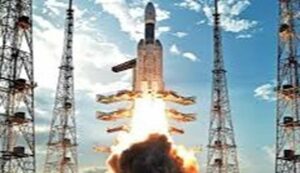ISRO Chief Says GSLV Mission Will Celebrate 100th Launch From Sriharikota Spaceport in January
New Delhi: According to a senior official, ISRO is preparing to reach a major milestone with a Geosynchronous Launch Vehicle mission in January that would mark the 100th launch from the Sriharikota spaceport.

According to ISRO Chairman S. Somanath, Monday’s PSLV-C60 mission marked the 99th launch from Sriharikota and successfully positioned two spacecraft for the Space Docking Experiment in a circular orbit.
You have all seen the spectacular lift-off and launch of the SpaDeX (Space Docking Experiment) rocket. Additionally, this is the 99th vehicle launch from Satish Dhawan Space Center, which is a significant milestone for us. Therefore, we plan to launch the 100th launch at the start of the next year,” he said.
Following the successful placement of Space Docking Experiment spacecraft A and B in a circular orbit by the PSLV-C60 mission, Somanath, who is also the Secretary of the Department of Space, was speaking to the media.
“In 2025, we will have many missions to start with the GSLV launching the navigation satellite NVS-02 in the month of January,” Somanath said in reference to upcoming launches that ISRO has planned. The GSLV-F12/NVS-01 rocket was successfully equipped with a navigation satellite by ISRO in May 2023. The NVS-01 navigation satellite, which weighed around 2,232 kg, was successfully launched into a Geosynchronous Transfer Orbit (GTO) by this GSLV rocket.
Of the second-generation satellites planned for the Navigation with Indian Constellation (NavIC) services, the NVS-01 was the first.
Somanath said he hoped the scientists will do many more Space Docking Experiments in the days ahead on Monday’s PSLV-C60 mission.
“With (India’s) space sector reforms and expansion of space activities, it is a really important mission.” In the next few days, there will be a lot more SpaDeX variations, including intricate docking system tasks,” he said.
According to Somanath, scientists do a conjunction study to see if a satellite entering an orbit passes extremely near to another satellite while in the same orbit, which is why the PSLV-C60 rocket was rescheduled from its original 9.58 pm to 10 pm on December 30.
“We must slightly relocate the current satellite if you discover any close proximity (between satellites).” In order to avoid this close circumstance, we either postpone the launch or make it early,” he said.
According to him, scientists spent time determining the optimal moment to launch and liftoff in order to go as far away from the other satellite in orbit as possible.





